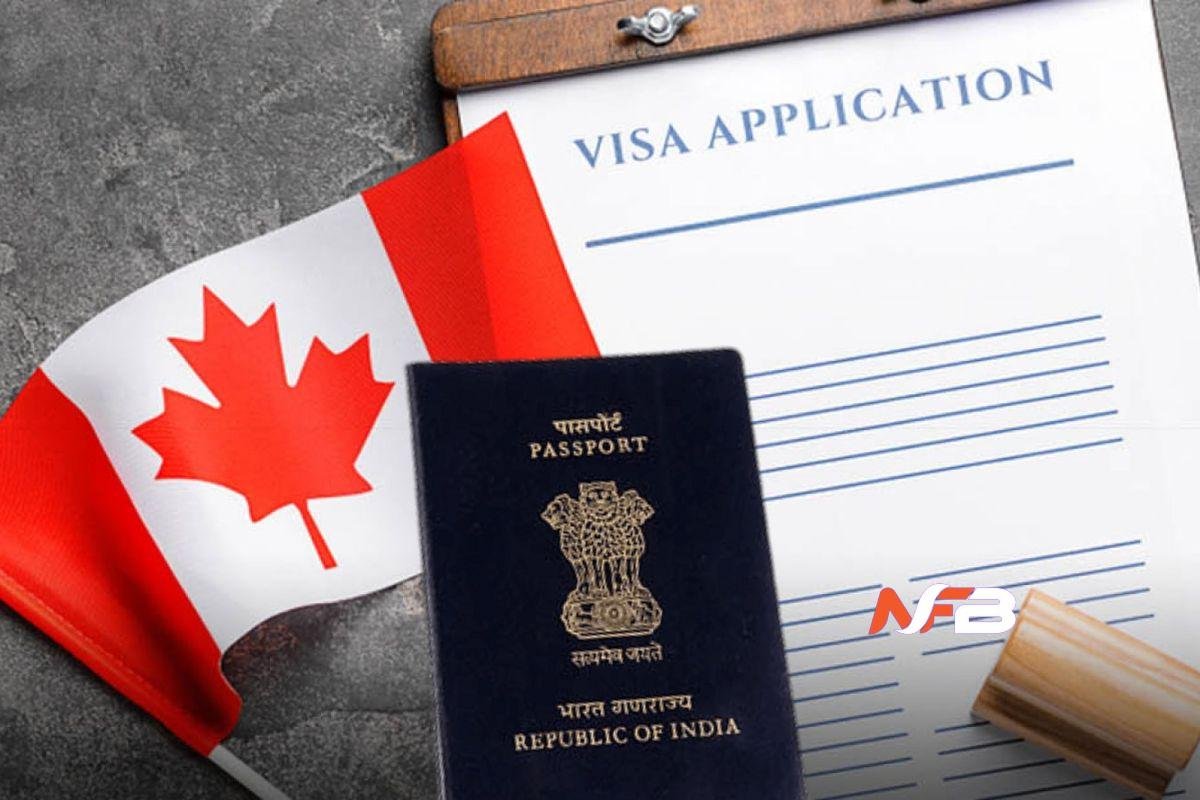Mistake 1: Incomplete or Incorrect Application Forms
When applying for a Super Visa to Canada, one of the most critical steps is completing the application forms accurately and comprehensively. Failure to do so can result in delays or even rejection of your visa application. Therefore, it’s crucial to understand the importance of accurately filling out all required forms, such as the IMM 5257 and IMM 5645.
Importance of Accurate Form Completion: Accurate completion of application forms is essential as it provides Canadian immigration authorities with the necessary information to assess your eligibility for the Super Visa. Any inaccuracies or incomplete information could lead to misunderstandings or doubts about your intentions, potentially jeopardizing your chances of approval.
Common Errors in Form Completion: Several common errors can occur when filling out Super Visa application forms. These errors may include:
- Missing Information: Failing to fill in all required fields or leaving sections blank can raise concerns about the completeness of your application.
- Incorrect Information: Providing incorrect details, such as dates of birth, addresses, or employment history, can lead to discrepancies that may need to be clarified or corrected.
- Inconsistent Information: Discrepancies between different sections of the application forms or conflicting details can raise red flags and lead to further scrutiny.
- Improper Signatures: Neglecting to sign where required or providing signatures that do not match official documents can result in the rejection of your application.
Tips for Double-Checking Information: To avoid these common errors and ensure the accuracy of your Super Visa application forms, consider the following tips:
- Review Instructions Carefully: Familiarize yourself with the instructions provided for each form and follow them meticulously.
- Use Updated Forms: Ensure that you are using the most recent versions of the application forms available on the official Government of Canada website.
- Take Your Time: Rushing through the form-filling process increases the likelihood of errors. Take your time to carefully review each section before submitting your application.
- Verify Information: Double-check all information provided, including personal details, addresses, travel history, and supporting documents, to ensure accuracy and consistency.
- Seek Assistance if Needed: If you’re unsure about how to complete any section of the application forms or have questions about specific requirements, seek assistance from immigration professionals or consult official resources provided by Immigration, Refugees, and Citizenship Canada (IRCC).
Mistake 2: Insufficient Proof of Relationship
When applying for a Super Visa to Canada, one of the key requirements is providing sufficient proof of your relationship to the Canadian citizen or permanent resident inviting you. Failing to provide adequate evidence of your relationship can result in delays or refusal of your visa application. Therefore, it’s essential to understand the requirements for proving your relationship and ensure that all necessary documents are clear, authentic, and properly certified.
Requirements for Proving Relationship: To establish your relationship with the Canadian citizen or permanent resident sponsoring your Super Visa application, you will need to submit documentation that clearly demonstrates the familial or spousal connection. While the specific requirements may vary depending on your relationship to the sponsor, common documents requested by Canadian immigration authorities include:
- Birth Certificates: Birth certificates showing the relationship between the applicant and the Canadian sponsor are typically required. This applies to relationships such as parent-child or grandparent-grandchild.
- Marriage Certificates: If you are applying as a spouse of a Canadian citizen or permanent resident, you will need to provide a marriage certificate as proof of your marital relationship.
- Adoption Papers: In cases where the relationship is based on adoption, legal adoption papers or court documents may be necessary to prove the legal parent-child relationship.
- Other Supporting Documents: Depending on the specific circumstances of your relationship, additional documents such as family photographs, joint bank account statements, or correspondence may be requested to further substantiate your bond.
Examples of Acceptable Proof: Acceptable proof of relationship typically includes official documents issued by government authorities, such as birth certificates issued by vital statistics offices or marriage certificates issued by relevant marriage registries. These documents should clearly indicate the names of both the applicant and the Canadian sponsor, as well as their relationship to each other.
Ensuring All Documents Are Clear and Properly Certified: To avoid any issues with your Super Visa application due to insufficient proof of relationship, it’s crucial to ensure that all documents submitted are clear, legible, and properly certified. Here are some tips to help you:
- Obtain Official Copies: Ensure that you obtain official copies of all required documents from the relevant authorities. Photocopies or uncertified documents may not be accepted.
- Certification and Translation: If any documents are not in English or French, they should be accompanied by certified translations into one of these languages. The translation should be done by a qualified translator and include a statement attesting to its accuracy.
- Check for Accuracy: Double-check all documents to ensure that they accurately reflect the information required and that there are no errors or discrepancies.
- Provide Supporting Documentation: In addition to primary documents such as birth or marriage certificates, consider including supplementary evidence, such as photographs or joint accounts, to further support your relationship.
Mistake 3: Failing to Meet Financial Requirements
One of the most common pitfalls encountered when applying for a Super Visa to Canada is failing to meet the financial requirements set by Canadian immigration authorities. Inadequate proof of the sponsor’s financial stability can lead to the rejection of the visa application. Therefore, it is crucial to understand the minimum necessary income thresholds for sponsors, how to provide evidence of income, and common errors to avoid when calculating and documenting income.
Minimum Necessary Income (MNI) Thresholds for the Sponsor: The minimum necessary income (MNI) threshold varies depending on the size of the sponsor’s family unit, including the number of dependents. Canadian immigration authorities assess the sponsor’s ability to support the visiting family member financially during their stay in Canada. The MNI is determined based on the Low Income Cut-Off (LICO) figures published annually by Statistics Canada.
How to Provide Proof of Income: Sponsors are required to provide clear and verifiable evidence of their income to demonstrate their ability to financially support the visiting family member. Common documents used to provide proof of income include:
- T4 Slips: T4 slips are issued by employers and provide details of an individual’s employment income, deductions, and contributions to government programs. Sponsors should include T4 slips for the most recent tax year.
- Notice of Assessment (NOA): The Notice of Assessment is issued by the Canada Revenue Agency (CRA) following the submission of income tax returns. It confirms the accuracy of the information provided on the tax return and verifies the sponsor’s income.
- Employment Letters: A letter from the sponsor’s employer stating their position, salary, and length of employment can also be submitted as proof of income. The letter should be on company letterhead and signed by an authorized representative.
Common Errors in Calculating and Documenting Income: Several errors can occur when sponsors calculate and document their income, leading to complications in the visa application process. These errors may include:
- Inaccurate Income Calculation: Sponsors may inadvertently exclude certain sources of income or miscalculate their total earnings, leading to discrepancies between the reported income and the MNI threshold.
- Failure to Include Supporting Documents: Sponsors must provide supporting documentation, such as T4 slips or NOAs, to corroborate their reported income. Failure to include these documents can result in delays or rejection of the visa application.
- Insufficient Income: Sponsors must ensure that their income meets or exceeds the MNI threshold for their family size. If their income falls below the required threshold, they may need to explore alternative options, such as obtaining a co-signer or providing additional financial assets.
Mistake 4: Inadequate Health Insurance Coverage
An often overlooked but critical aspect of applying for a Super Visa to Canada is ensuring adequate health insurance coverage for the visiting family member. Inadequate health insurance can lead to significant financial burdens in the event of illness or injury while in Canada, as well as potential delays or refusal of the visa application. Therefore, it is essential to understand the requirements for health insurance coverage, including the necessity for private health insurance from a Canadian insurance company, the minimum coverage amount and duration, and ensuring the policy meets all Super Visa requirements.
Requirement for Private Health Insurance from a Canadian Insurance Company: One of the primary requirements for the Super Visa application is obtaining private health insurance from a Canadian insurance company. This insurance coverage is mandatory for all Super Visa applicants and is intended to ensure that the visiting family member has access to necessary medical care while in Canada without imposing a financial burden on the Canadian healthcare system.
Minimum Coverage Amount and Duration: The minimum required coverage amount for Super Visa health insurance is at least $100,000 for a duration of one year. This coverage is intended to provide financial protection for medical expenses, including hospitalization, emergency medical services, and repatriation, should the need arise during the visitor’s stay in Canada.
Ensuring the Policy Meets All Super Visa Requirements: When purchasing health insurance for the Super Visa application, it is essential to ensure that the policy meets all specific requirements set by Canadian immigration authorities. Some key considerations include:
- Coverage Limits: The insurance policy should provide coverage for medical expenses up to the minimum required amount of $100,000 and should not have any limitations or exclusions that would invalidate coverage for essential services.
- Repatriation Coverage: The policy should include coverage for repatriation expenses, which may be necessary in the event of a medical emergency requiring the visitor to return to their home country for medical treatment or repatriation of remains in the unfortunate event of death.
- Policy Duration: The insurance policy should cover the entire duration of the visitor’s intended stay in Canada, with no gaps or lapses in coverage. It is advisable to purchase a policy with a duration that exceeds the planned stay to account for any unforeseen circumstances or delays.
- Canadian Insurance Provider: The insurance policy must be issued by a Canadian insurance company authorized to sell health insurance in Canada. Policies purchased from foreign insurers or through international insurance brokers may not meet Super Visa requirements.
Mistake 5: Not Undergoing the Required Medical Examination
Among the crucial steps in the process of applying for a Super Visa to Canada is undergoing the mandatory medical examination by an approved panel physician. Failing to fulfill this requirement can lead to delays or rejection of the visa application. Therefore, it’s imperative to understand the necessity of the medical examination, common mistakes related to scheduling and completing the exam, and tips for ensuring timely submission of medical examination results.
Requirement for a Medical Examination by an Approved Panel Physician: Canadian immigration regulations mandate that all Super Visa applicants undergo a medical examination by a designated panel physician approved by Immigration, Refugees, and Citizenship Canada (IRCC). The purpose of this examination is to assess the applicant’s health status and determine if they pose any public health or safety risks to Canadian residents.
Common Mistakes Related to Scheduling and Completing the Medical Exam: Several common mistakes can occur regarding the scheduling and completion of the medical examination, including:
- Delayed Scheduling: Waiting until the last minute to schedule the medical examination can result in appointment unavailability, leading to delays in obtaining the required medical clearance.
- Incomplete Documentation: Failing to bring all necessary documents to the medical examination appointment, such as valid identification and passport photos, can hinder the completion of the examination and delay the processing of the visa application.
- Failure to Follow Instructions: Not adhering to instructions provided by the panel physician, such as fasting requirements or medication restrictions prior to the examination, can lead to incomplete or inaccurate results.
Tips for Ensuring Timely Submission of Medical Examination Results: To avoid the pitfalls associated with the medical examination process, consider the following tips:
- Schedule Early: As soon as you receive notification of your Super Visa application approval or request for a medical examination, schedule an appointment with an approved panel physician promptly to secure a convenient date and time.
- Prepare Documentation: Gather all required documents, including identification, passport photos, and any medical records or prescription medications, well in advance of your appointment to ensure a smooth and efficient examination process.
- Follow Instructions Carefully: Pay close attention to any instructions provided by the panel physician regarding preparation for the examination, such as fasting requirements or medication adjustments, and adhere to them meticulously to ensure accurate results.
- Communicate Any Concerns: If you have any pre-existing medical conditions or concerns that may affect the outcome of the examination, communicate them openly and honestly with the panel physician to ensure appropriate evaluation and documentation.
Mistake 6: Ignoring Biometric Requirements
One of the most critical aspects of a successful Super Visa application is the inclusion of all necessary supporting documents. Failing to provide sufficient documentation or omitting key paperwork can lead to delays or even denial of the visa application. Therefore, it is crucial to understand the importance of including all required supporting documents, common documents that are often overlooked, and strategies for organizing documents to ensure nothing is missed.
Importance of Including All Necessary Supporting Documents: Supporting documents play a vital role in substantiating the information provided in the Super Visa application and demonstrating the applicant’s eligibility for the visa. These documents provide evidence of various aspects, such as the purpose of the visit, financial stability, and ties to the home country. Common supporting documents include:
- Invitation Letter: A letter of invitation from the Canadian citizen or permanent resident inviting the applicant to visit Canada is a crucial document. It should outline the purpose and duration of the visit, as well as details of the relationship between the sponsor and the applicant.
- Proof of Funds: Documents demonstrating the sponsor’s financial capacity to support the applicant during their stay in Canada are essential. This may include bank statements, employment letters, or tax returns indicating sufficient income or savings to cover expenses.
- Proof of Insurance: As discussed earlier, proof of private health insurance coverage from a Canadian insurance company is mandatory for Super Visa applicants. This documentation ensures that the applicant has access to necessary medical care while in Canada.
Commonly Overlooked Documents: Despite the importance of supporting documents, certain paperwork is frequently overlooked in Super Visa applications. Some commonly overlooked documents include:
- Travel Itinerary: Providing a detailed travel itinerary, including flight reservations and accommodation bookings, can help demonstrate the applicant’s intention to return to their home country after the visit to Canada.
- Passport Copies: Clear copies of the applicant’s passport pages, including the biographical information and any existing visas or entry stamps, should be included to verify identity and travel history.
- Relationship Evidence: Additional evidence of the relationship between the applicant and the Canadian sponsor, such as photographs, correspondence, or affidavits from family members or friends, can strengthen the case for the visa application.
Organizing Documents to Ensure Nothing Is Missed: To avoid missing or overlooking any required supporting documents, applicants should adopt effective strategies for organizing their paperwork. Some tips for organizing documents include:
- Create a Checklist: Develop a comprehensive checklist of all required supporting documents based on the Super Visa application requirements provided by Immigration, Refugees, and Citizenship Canada (IRCC).
- Categorize Documents: Group related documents together based on the purpose they serve, such as financial documents, relationship evidence, or travel-related paperwork, to facilitate easy retrieval and submission.
- Double-Check Before Submission: Before submitting the application, thoroughly review the checklist and ensure that all required documents have been included. It may be helpful to have a trusted individual, such as a family member or immigration consultant, review the documents for completeness and accuracy.
Mistake 7: Submitting Inconsistent Information
One of the critical errors that can jeopardize the success of a Super Visa application is submitting inconsistent information across various forms and documents. Consistency in the information provided is essential for demonstrating credibility and trustworthiness to immigration authorities. Failure to maintain consistency can raise red flags and lead to delays or rejection of the application. Therefore, it’s crucial to ensure uniformity across all forms and documents, identify common areas where inconsistencies may arise, and employ strategies to avoid contradictions in the application.
Ensuring Consistency Across All Forms and Documents: Consistency in the information provided across all forms and documents is paramount for a successful Super Visa application. Whether completing application forms, providing supporting documents, or attending interviews, applicants must ensure that all details match and align with each other. This includes consistency in dates, names, addresses, employment history, and other relevant information.
Common Areas Where Inconsistencies Arise: Inconsistencies can arise in various areas of the application, including:
- Dates: Discrepancies in dates, such as travel history, employment periods, or educational milestones, can raise doubts about the accuracy of the information provided.
- Names: Differences in the spelling or order of names across different documents can lead to confusion and may require clarification or correction.
- Addresses: Inconsistencies in addresses, including variations in street names, apartment numbers, or postal codes, can create discrepancies that may need to be resolved.
- Employment History: Discrepancies in employment details, such as job titles, company names, or employment dates, can raise questions about the applicant’s work history and stability.
How to Avoid Contradictions in Your Application: To avoid inconsistencies and contradictions in the Super Visa application, consider the following strategies:
- Double-Check Information: Take the time to carefully review all forms and documents before submission to ensure accuracy and consistency. Verify that details such as dates, names, and addresses match across all paperwork.
- Use Official Documents: Whenever possible, rely on official documents, such as birth certificates, passports, or tax returns, to provide accurate information. Avoid relying solely on memory or informal records when completing application forms.
- Maintain Records: Keep detailed records of important dates, events, and transactions to ensure consistency when completing application forms or providing supporting documents.
- Seek Clarification: If you encounter discrepancies or inconsistencies in your records, take steps to clarify and reconcile the information before submitting your application. This may involve contacting relevant authorities or obtaining official documentation to support your claims.
- Seek Professional Assistance: If you’re unsure about how to address inconsistencies or contradictions in your application, seek guidance from immigration professionals or legal advisors. They can provide valuable insights and assistance in ensuring the accuracy and coherence of your application.
Mistake 8: Not Responding Promptly to IRCC Requests
When applying for a Super Visa to Canada, one of the critical mistakes applicants can make is failing to respond promptly to requests from Immigration, Refugees, and Citizenship Canada (IRCC) for additional information or documents. Timely responses are essential for ensuring the smooth processing of the visa application and avoiding unnecessary delays or complications. Therefore, it’s crucial to understand the importance of responding promptly to IRCC requests, common reasons for delays in responding, and tips for staying organized and prompt throughout the application process.
Importance of Timely Responses to IRCC Requests: Prompt responses to IRCC requests are crucial for several reasons:
- Expedited Processing: Timely submission of requested information or documents allows IRCC to continue processing the application without unnecessary delays, helping applicants receive a decision on their visa application sooner.
- Avoidance of Refusals: Failure to respond to IRCC requests within the specified timeframe can result in the application being considered incomplete or abandoned, leading to potential refusal of the visa.
- Clarification of Information: IRCC requests may seek clarification or additional details about certain aspects of the application. Prompt responses help provide the necessary information to address any concerns or questions raised by immigration authorities.
Common Reasons for Delays and How to Avoid Them: Several factors can contribute to delays in responding to IRCC requests, including:
- Lack of Awareness: Applicants may not check their email or postal mail regularly, resulting in missed notifications of IRCC requests. Ensure that you regularly monitor all communication channels used by IRCC to contact applicants, including email, online accounts, and physical mail.
- Insufficient Documentation: Gathering the required information or documents may take time, especially if applicants need to obtain documents from external sources or third parties. Be proactive in preparing all necessary documentation and anticipate potential requests from IRCC.
- Procrastination: Delay in responding to IRCC requests due to procrastination or misplaced priorities can lead to missed deadlines and unnecessary complications. Make responding to IRCC requests a priority and allocate time to address them promptly.
Tips for Staying Organized and Prompt: To avoid delays in responding to IRCC requests, consider the following tips:
- Maintain Communication Channels: Ensure that your contact information provided to IRCC is accurate and up to date. Regularly check your email, online accounts (such as the IRCC portal), and physical mail for any communications from IRCC.
- Create Reminders: Set up reminders or alerts to notify you of any pending IRCC requests or deadlines. Use calendar apps or task management tools to stay organized and ensure timely responses.
- Keep Copies of Documents: Maintain copies of all submitted documents and correspondence with IRCC for reference. This ensures that you have easy access to the information needed to respond to any requests promptly.
- Follow Instructions Carefully: Pay close attention to the instructions provided in IRCC requests and ensure that you provide all requested information or documents in the specified format and within the given timeframe.
- Seek Assistance if Needed: If you encounter challenges in gathering or submitting requested information, seek assistance from immigration professionals or legal advisors. They can provide guidance and support to help you navigate the process effectively.
Mistake 9: Ignoring Application Deadlines
One of the critical errors that can significantly impact the success of a Super Visa application is ignoring important application deadlines. Timely submission of required documents and meeting specified deadlines is essential for ensuring the smooth processing of the visa application and avoiding potential delays or refusal. Therefore, it’s crucial to be aware of key deadlines in the application process, understand common reasons for missed deadlines, and employ effective strategies for managing deadlines effectively.
Awareness of Key Deadlines in the Application Process: Throughout the Super Visa application process, several key deadlines must be observed, including:
- Application Submission Deadline: Applicants must submit their Super Visa application within the specified timeframe, typically outlined on the IRCC website or in the application instructions. Failing to submit the application before the deadline can result in delays or refusal.
- Biometric Appointment Deadline: Applicants required to provide biometric data must schedule and attend their biometric appointment within the timeframe specified by IRCC. Missing this deadline can lead to delays in processing the application.
- Responding to IRCC Requests: Applicants must respond promptly to any requests from IRCC for additional information or documents. Ignoring or missing deadlines for responding to IRCC requests can result in delays or refusal of the application.
Common Reasons for Missed Deadlines: Several factors can contribute to missed application deadlines, including:
- Lack of Awareness: Applicants may overlook or be unaware of important deadlines due to inadequate research or failure to review application instructions carefully.
- Procrastination: Delay in completing required tasks or gathering necessary documents can result from procrastination or misplaced priorities, leading to missed deadlines.
- Miscommunication: Misunderstandings or miscommunication regarding deadlines may occur between applicants and immigration authorities, resulting in missed opportunities to submit required documentation or attend appointments.
Strategies for Managing Deadlines Effectively: To avoid missing important deadlines in the Super Visa application process, consider the following strategies:
- Create a Timeline: Develop a comprehensive timeline outlining key milestones and deadlines in the application process, including submission deadlines, biometric appointment dates, and response deadlines for IRCC requests.
- Set Reminders: Use calendar apps, task management tools, or physical reminders to notify you of upcoming deadlines and ensure that you allocate sufficient time to complete required tasks.
- Prioritize Tasks: Identify critical tasks and prioritize them based on their importance and urgency. Allocate time and resources accordingly to ensure that essential tasks are completed on time.
- Break Down Tasks: Break down complex tasks into smaller, manageable steps to facilitate progress and prevent overwhelm. Set specific deadlines for each subtask to ensure steady progress towards meeting overall deadlines.
- Stay Organized: Maintain a well-organized system for managing documents, correspondence, and application materials to ensure easy access to necessary information and prevent delays due to misplaced or lost paperwork.
- Seek Assistance if Needed: If you encounter challenges in meeting deadlines or completing required tasks, don’t hesitate to seek assistance from immigration professionals or legal advisors. They can provide guidance and support to help you navigate the application process effectively.















Leave a Reply